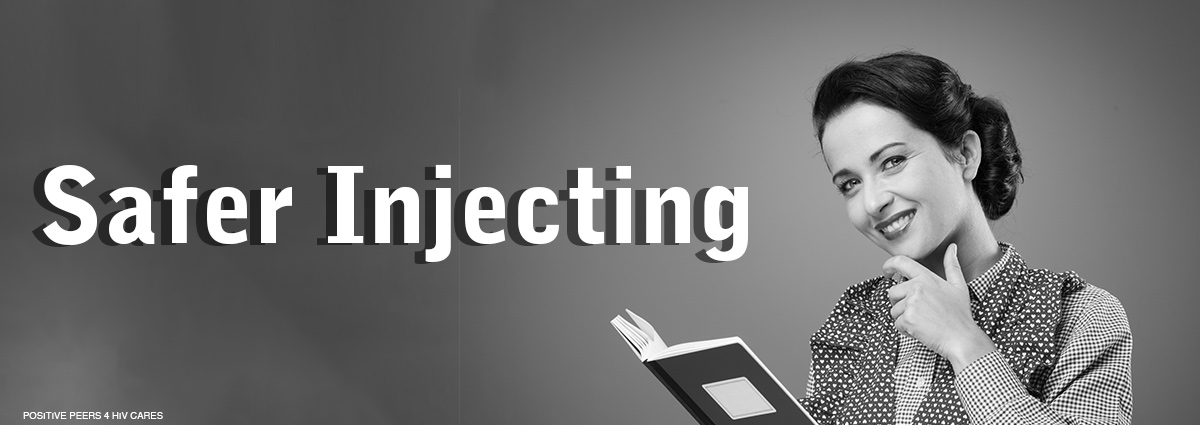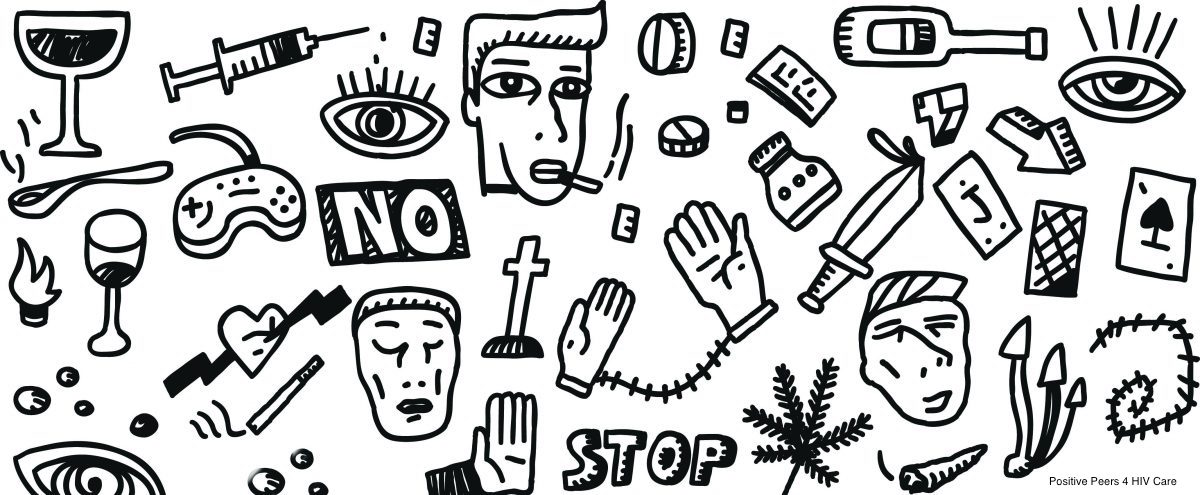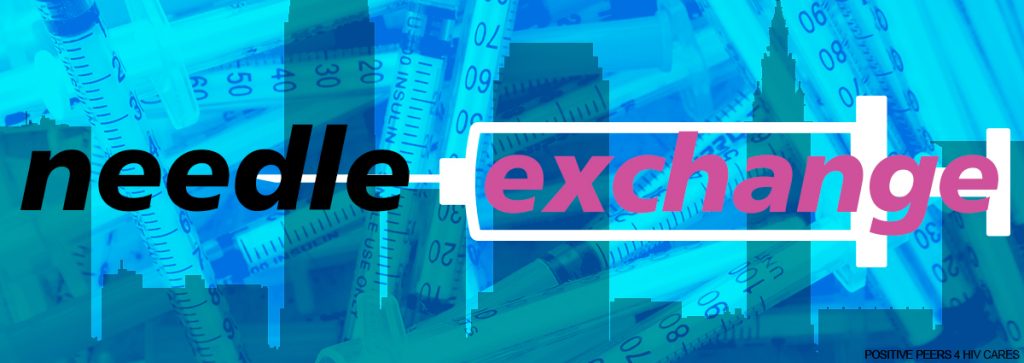
By: Ann K. Avery, MD, Infectious Disease Physician at MetroHealth Medical Center
It doesn’t matter what you’re injecting or why you’re doing it — heroin for your habit, steroids for muscle growth, or hormones for a transition — it’s a lot safer to use a sterile needle every time you inject.
We get that this isn’t always practical, but it’s still a wise goal to (how should we put this?) shoot for.
You probably already know this by now, but one of the ways HIV spreads is through sharing needles.
Every time someone injects, a little bit of blood stays in the needle. If that blood contains HIV, it can infect anybody who uses that needle afterward. Same goes for Hep-C, which is even easier to catch (because any part of the works can be infectious for Hep-C, not just the syringe).
Injecting doesn’t have to go into a vein to transmit HIV. Skin-popping and shooting directly into muscle also will transmit it.
Sharing needles is one of the easiest ways for HIV to transmit from one person to another. Using new, sterile needles has been proven to significantly lower rates of HIV in injection drug users. That’s why programs that provide clean needles are an important part of any community’s HIV prevention strategy.
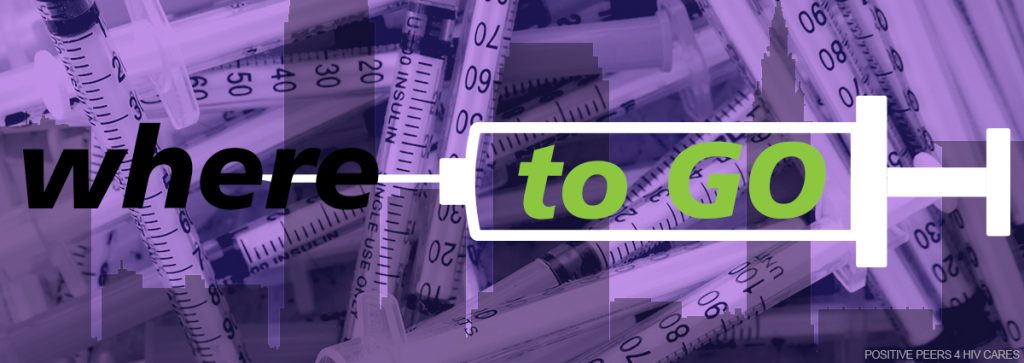
The needle exchange in Cleveland and around the country
So, where can you get clean needles?
Cleveland has two needle-exchange locations (see table below). Both are one-for-one programs, which means you have to turn in a used needle to get a new, sterile one.
| Needle exchanges in Metro Cleveland | ||
| Where | Circle Health Services, 12201 Euclid Avenue (Google map) | Exchange van at HUMADAOP, 3305 W. 25th St. (Google map) |
| When | Monday-Thursday, 11 a.m. - 7 p.m.; and Fridays, 10 a.m.–5 p.m. | Monday-Friday, 9 a.m.-noon and 1-3 p.m. |
More programs, courtesy of the North American Syringe Exchange Network:
Come join our private, stigma-free, supportive community.
Health management tools with medication & appointment reminders.
Social networking in a community conversation & private chats.
Reducing your risk
It’s easy to reduce your risk for HIV. Here are a few ways you may consider trying:
- You can take PrEP (pre-exposure prophylaxis), a once-daily pill to prevent HIV infection. (Find out more on PrEP)
- If you’re concerned that you might’ve been exposed HIV from a shared needle or through sex, get tested right away. Another treatment called PEP (post-exposure prophylaxis) may be able to stop the infection if you start taking it within 72 hours of exposure. (Find out more on PEP).
- Use new needles every time, or as much as possible
- Reduce your number of injection and sex partners
- Get tested regularly
(Check out this article for more on clean needles)
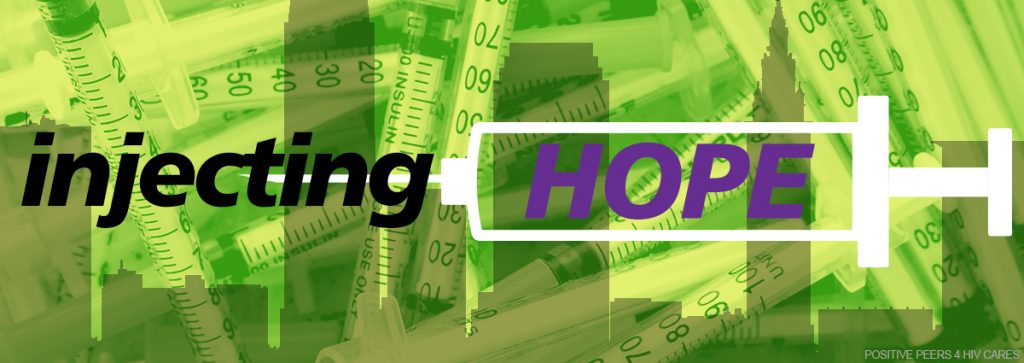
Advocating for more needle exchange programs
The state of Ohio has a handful of needle exchange programs, but they can be complicated or inconvenient to use at times. You can help change that by encouraging your local board of health to create a program locally, like Cleveland’s. It’s not going to be easy, but nothing worth it ever seems to be. You might start by talking with:
- Community addiction services providers
- Hepatitis C and HIV advocacy organizations
- Local alcohol, drug addiction, and mental health services board
- Representatives of the city, village, or township where the program is to be established
- Local law enforcement agencies and prosecutors
- Local residents
Sure, it seems like a bit of a long shot. But as Margaret Mead once said, “Never doubt that a small group of thoughtful, committed citizens can change the world; indeed, it's the only thing that ever has.”
More Positive Peers articles on HIV and drugs:
- Lower the risk of infection from injectable drugs
- HIV risks of meth, cocaine and injected drugs
- Alcohol, drugs and HIV
Related Blogs:

